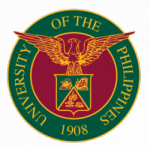Students of ChE 134 are tasked to identify and solve problems encountered by local government units and communities that involve fluid mechanics and particle technology.
Category: Technical Assistance
With the guidance of the faculty-in-charge (FIC), this course guides students in assessing the dietary needs of a patient/client in need of dietary intervention. They formulate diet plans (with the guidance of the FIC who is a registered nutritionist-dietitian) and implement the diet plans with the patients and/or clients. They also monitor and evaluate the diet therapy.
With the guidance of the faculty-in-charge (FIC), the students are guided to assess the training and education needs of a specific target group (e.g., pregnant/lactating women, children, adolescents, adults, and elderly, and community health workers) in a low-income community. They are also guided in formulating an instructional design for a nutrition education session. They implement the instructional design to the chosen target group, and document and evaluate the seminar or training session.
With the guidance of the faculty-in-charge (FIC), the students are guided in analyzing the nutritional situation of the community. They are taught to facilitate the planning, implementation, monitoring, and evaluation of a nutrition program that will address the identified nutritional problem together with the Local Nutrition Committees and other stakeholders in the community. They endorse nutrition interventions to the Local Nutrition Committees and other stakeholders in the community, and they identify, analyze the nutritional needs, and formulate a nutrition care plan for an at-risk family. They assist community health and nutrition workers with their nutrition-related tasks and responsibilities, and they conduct a capability-building seminar for the community health and nutrition workers.
The Department offers consultation services to students and professionals on their researches. Research topics covered in consultations range from natural products analysis, methods development, bioassay, biochemistry and to waste disposal. This service has been offered since 2014, and can be availed either through formal request or by walking-in.
BIDANI aims to promote nutrition-in-development through community and other key stakeholders’ participation in an integrated management system facilitated by State Universities and Colleges’ extension programs. It is a community-based integrated development strategy designed to improve nutritional status and general well-being of the poor. To the academe, BIDANI is an action research. For partner LGUs, it is a strategy to systematically help them evolve their own development programs with an orientation to nutrition.
This seeks to evaluate hazards in the workplace, including heat stress, illumination, noise, ventilation, airborne contaminants such as lead dust, etc.
The consultants of the UP-PGH Department of Rehabilitation Medicine serve as short-term consultants and speakers to government and private agencies.
Some the recent projects that involved the consultants and speakers include the workshop “Determining Eligibility for the Issuance of PWD ID”, the Philhealth Meeting on Z-morph package on Children with Disabilities, the PITAHC Workshop, the IMCI project of the Teachers Foundation, and the creation of Modules on Autism, ADHD, and Intellectual Deficits for Early Childhood Care and Development (ECCD) Council.
This survey helps to identify hazards in the client’s workplace.
This service seeks to provide technical expertise on environmental and occupational health through participation in technical working groups, research projects, trainings, seminars and conferences.

